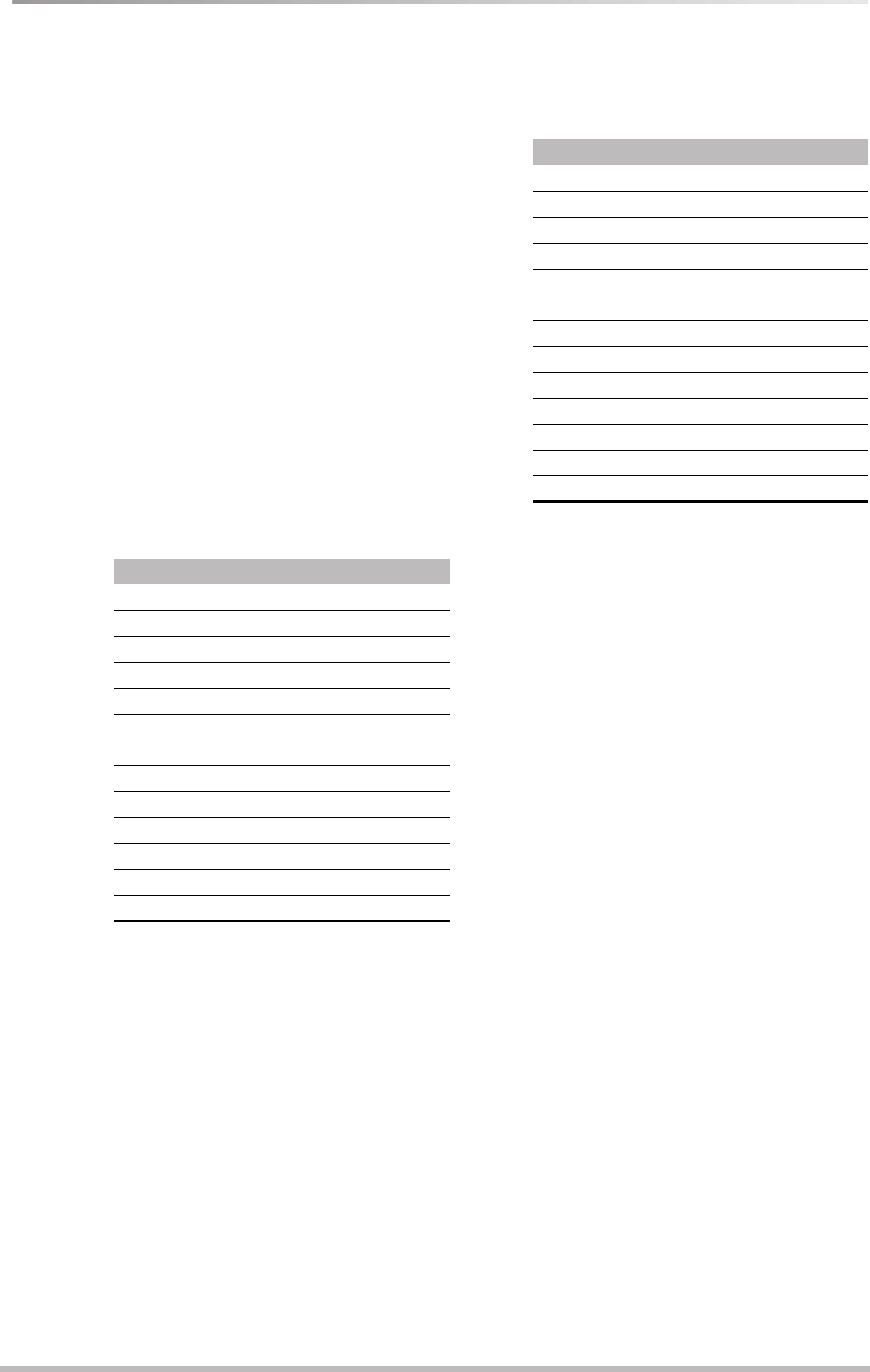
[6] DRUMS mode—Owner’s Manual
9
[6] DRUMS mode
Press the DRUMS selector [6] to switch the PK-5A to
DRUMS mode. In keeping with standardized usage
(GM and GS, for example), the PK-5A transmits on
MIDI channel “10” when this mode is selected. You
can change this, however (e.g. to “16” in order to
control the M.Drums part of Roland arranger-type
instruments).
After selecting DRUMS mode, you can use the
PK-5A’s pedals for “drumming”.
In DRUMS mode [6], the following functions are
available (FUNCTION section):
●
[9] FACTORY SET
After pressing the FACTORY SET selector [9] (the
corresponding indicator lights), 13 note num-
bers can be transmitted for triggering an exter-
nal instrument’s Drum Set. The note numbers
assigned to the pedals in this way represent the
PK-5A’s factory set. This FACTORY SET cannot
be overwritten.
On most (Roland arranger-type and GM/GM2/
GS) instruments, these assignments correspond
to the following drum sounds:
●
[10] USER SET
Press the USER SET selector [10] (the corre-
sponding indicator lights), to select a different
Drum Set assignment, which is called USER SET.
Unlike the factory set, the USER SET assign-
ments can be changed (which would be useful
for triggering samples, grooves, etc., for exam-
ple). The original assignments are as follows:
• Programming the User Set
(1) Connect an external keyboard’s (or the
sequencer’s) MIDI OUT socket to the PK-5A’s
MIDI IN socket.
(2) On the external instrument, set the transmit
channel (TX) to the MIDI channel used by the
PK-5A’s DRUMS mode (probably “10”).
(3) On the PK-5A, select the DRUMS [6] mode.
(4) Press and hold the USER SET selector [10] for
at least two seconds (until its indicator starts
flashing).
(5) While the USER SET indicator is flashing,
press the key on the external keyboard whose
note number you wish to assign to the USER
SET.
Example: to assign the note “C1” (24) to a pedal,
press that key on the external instrument (or
transmit a long C1 with your sequencer).
(6) On the PK-5A, press the pedal you wish to
assign the received note message to.
Example: to assign the “C1” to the leftmost
pedal, press [0].
Release the key you are holding on your key-
board. All indicators briefly light to confirm
your selection.
(7) Repeat steps (4)~(6) to assign different note
numbers to the remaining pedals.
Pedal MIDI note Drum instrument
0 C2 36 Standard Kick 1
1 C#2 37 Side Stick
2 D2 38 Standard Snare 1
3 D#2 39 Hand Clap
4 E2 40 Standard Snare 2
5 F2 41 Low Tom 2
6 F#2 42 Closed Hi-Hat
7 A2 45 Mid Tom 2
8 G#2 44 Pedal Hi-Hat
9 C3 48 High Tom 2
A A#2 46 Open Hi-Hat
B C#3 49 Crash Cymbal 1
C D#3 51 Ride Cymbal 1
Pedal MIDI note Drum instrument
0 E4 64 Open Low Conga
1 D#4 63 Open High Conga
2 D4 62 Mute High Conga
3 C#4 61 Low Bongo
4 C4 60 High Bongo
5 F#4 66 Low Timbale
6 F4 65 High Timbale
7 F#3 54 Tambourine
8 A4 69 Cabasa
9 G#4 68 Low Agogo
A G4 67 High Agogo
B B4 71 Short High Whistle
C C#5 73 Short Guiro
PK-5A book Page 9 Thursday, July 24, 2003 6:26 PM
















